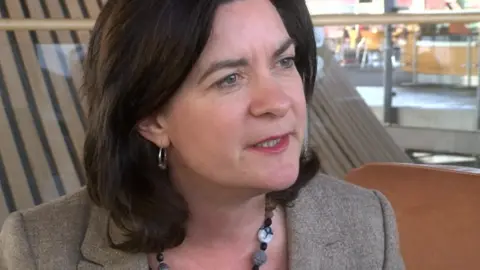Smart speakers could be speaking Welsh
 Daisy-Daisy
Daisy-DaisyWelsh language versions of smart speakers and voice-driven devices such as Alexa and Siri could be developed in future.
The Welsh Government's Welsh language minister said it is important people can use Welsh with the devices.
It follows warnings that gadgets are turning English into the language of choice in some Welsh-speaking homes.
The aim is part of the government's Welsh Language Technology Action Plan, which is launched on Tuesday.
Announcing the scheme, minister Eluned Morgan said that one of the key aims would be to develop artificial intelligence so that machines would be able to understand spoken Welsh.
Improving computer-assisted translation would also be a key element of the plan, seen as part of the government's wider aim of having a million Welsh speakers by 2050.
The announcement also includes a pledge to support existing Welsh language content, including websites, spell-check programmes and interactive maps.
"So many people use technology for so many different things in their lives," said Ms Morgan.
"We want to make it as easy as possible for them to do this in Welsh.
"This is why we want Welsh language functionality to be readily available, without having to be requested, when it comes to technology, whether that is working on your computer, using your phone or tablet.
"We want people to be able to use Welsh and English easily in their virtual lives at home, in school, in work or on the move."

Though the Welsh Government has not announced how much funding will go towards enacting the new action plan, the minister previously said that they have "invested a lot more money in the Welsh language", and that grants have been awarded to "innovative" language technology projects.
Earlier this year, the head of a specialist unit at Bangor University called for a more "long term vision" when it comes to supporting those schemes.
Delyth Prys, from the Language Technology Unit at Canolfan Bedwyr, said that organisations were not getting enough long-term spending commitments to "get our teeth into projects" and develop new resources.
The unit has been responsible for developing projects such as Lleisiwr, which aimed to replicate the voices of patients in danger of losing the ability to speak due to throat cancer or neurological conditions.
